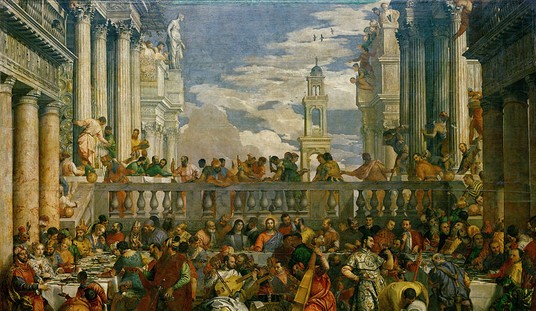Venezuela’s Hugo Chavez has channeled his inner Fidel once again. Chavez seized a food processing unit owned by Cargill, one of the US’s largest privately-held companies. Chavez claims that Cargill won’t produce food at a low enough price:
President Hugo Chavez seized a local unit of American food giant Cargill on Wednesday and threatened to nationalize Venezuela’s largest private company, Polar, as he demanded industry produce cheaper rice.
The clash with the food companies came less than three weeks after Chavez, a Cuba ally who has nationalized swaths of the Venezuelan economy, won a referendum on allowing him to run for reelection. …
U.S. company Cargill, which operates one rice mill in Venezuela, said earlier in the week it was expecting a visit from officials even though it does not produce the type of rice that is at the center of the dispute.
Chavez said he ordered the takeover because Cargill — the largest privately owned U.S. company — does not produce basic rice that is subject to government price controls.
“Prepare the decree, we are going to expropriate Cargill. We are not going to tolerate this,” Chavez said.
Basically, Chavez wants to do for food what he’s done for energy. Since driving out foreign owners, Chavez has lost significant production in Venezuelan oilfields. Electrical production has deteriorated, and ironically hurts the poorer people most by damaging appliances they can’t afford to replace. The loss of expertise in energy created by Chavez’ nationalizations has the oil-rich country diving into Third World status on electrical power.
Nationalizing the food industry will eventually have the same effect. Cargill operates as a business, not a patronage system and a bureaucracy, which means their employees have to produce to meet the profit incentive. Once Chavez seizes it, he will staff it with political cronies and paper-pushers who have no idea how to produce food efficiently. Costs will go up, but Chavez will hide them from the masses by selling the product at a loss. It’s the Robert Mugabe playbook, only with 10% less violence … for now.
The big question is why Cargill stuck around for this long. Perhaps they have already written off their Venezuelan investments and just decided to stick around as long as possible. This should signal the rest of the foreign investors in Venezuela to pack their bags and look for greener pastures.







Join the conversation as a VIP Member